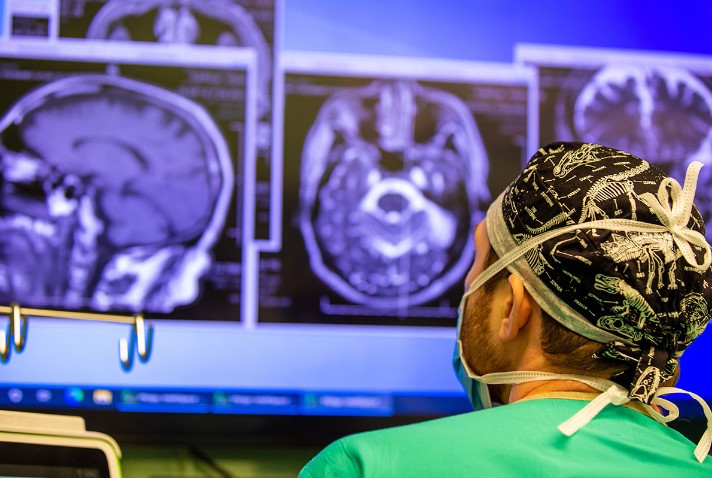
Brain Tumours: Understanding, Treatment, and Hope

Brain tumours are a complex and often daunting medical condition that affects thousands of people worldwide. In this article, we delve into the various aspects of brain tumours, from understanding the different types to exploring treatment options and offering hope to those affected.
Introduction to Brain Tumours
The human brain, the most intricate organ in the body, is susceptible to the growth of abnormal cells, leading to the formation of tumours. These tumours can arise from various types of brain cells and tissues, and their impact can vary significantly depending on their location, size, and type.
Types of Brain Tumours
Primary Brain Tumours
Primary brain tumours originate within the brain itself and can be benign (non-cancerous) or malignant (cancerous). They are classified based on the type of cells they originate from and their location within the brain.
Secondary Brain Tumours
Secondary brain tumours, also known as metastatic brain tumours, occur when cancerous cells from other parts of the body spread to the brain. Common primary cancer sites that metastasize to the brain include the lungs, breasts, and skin (melanoma).
Causes and Risk Factors
The exact causes of brain tumours are often unknown, but certain risk factors may increase the likelihood of developing them. These include exposure to radiation, family history of brain tumours, and certain genetic conditions.
Symptoms and Signs
The symptoms of brain tumours can vary widely depending on their size, location, and rate of growth. Common signs include headaches, seizures, cognitive changes, vision problems, and difficulty with balance and coordination.
Diagnosis of Brain Tumours
Imaging Tests
Imaging tests such as MRI (Magnetic Resonance Imaging) and CT (Computed Tomography) scans are commonly used to visualize brain tumours and assess their size and location.
Biopsy
A biopsy involves the removal of a small sample of tissue from the tumour for examination under a microscope to determine its type and grade.
Treatment Options
Surgery
Surgery is often the first-line treatment for brain tumours, aiming to remove as much of the tumour as possible while preserving brain function.
Radiation Therapy
Radiation therapy utilizes high-energy beams to target and destroy cancer cells, either as a primary treatment or following surgery to eliminate remaining tumour cells.
Chemotherapy
Chemotherapy involves the use of drugs to kill cancer cells or prevent their growth and is often used in combination with other treatments for brain tumours.
Targeted Therapy
Targeted therapy drugs are designed to specifically target and disrupt the molecular pathways involved in the growth of cancer cells, offering more precise and effective treatment options.
Prognosis and Survival Rates
The prognosis for brain tumours varies widely depending on factors such as tumour type, grade, and response to treatment. Survival rates can range from a few months to many years, with ongoing advancements in treatment improving outcomes for many patients.
Coping with Brain Tumours
Coping with a brain tumour diagnosis can be challenging, both emotionally and physically. Support groups, counseling, and access to resources can help patients and their families navigate the journey and find comfort and support.
Prevention and Lifestyle Changes
While the prevention of brain tumours is not always possible, certain lifestyle changes such as avoiding exposure to harmful radiation, maintaining a healthy diet and weight, and quitting smoking may help reduce the risk.
Research and Advancements in Brain Tumour Treatment
Ongoing research and clinical trials are continuously advancing our understanding of brain tumours and developing new and innovative treatment approaches, offering hope for improved outcomes and quality of life for patients.
Impact on Daily Life
Living with a brain tumour can significantly impact daily life, affecting everything from mobility and cognition to emotional well-being and relationships. Supportive care and rehabilitation services can help patients adapt and regain function.
Stories of Survival
Despite the challenges of living with a brain tumour, many individuals have overcome adversity and found strength and resilience in their journey. Their stories inspire hope and highlight the importance of perseverance and positivity.
Awareness and Advocacy
Raising awareness about brain tumours and advocating for research funding and support services is essential in improving early detection, treatment options, and outcomes for patients and their families.
Conclusion
Brain tumours represent a complex and challenging medical condition, but with advancements in treatment and ongoing research, there is hope for improved outcomes and quality of life. By understanding the different types, treatment options, and coping strategies, patients and their families can navigate the journey with confidence and resilience.
FAQs
- What are the common symptoms of brain tumours?
- How are brain tumours diagnosed?
- What are the treatment options for brain tumours?
- What factors influence the prognosis of brain tumours?
- How can I support a loved one diagnosed with a brain tumour?

